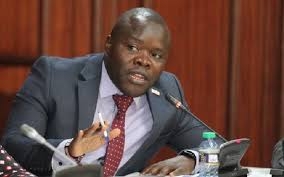Kenya is inching closer to having the National Climate Change Council (NCCC) more than six years after the enactment of the Climate Act.
This follows the nomination of members to the council by President William Ruto underscoring his commitment to addressing the adverse effects of global warming in the country.
Senators are expected to resume Tuesday after a long recess with the Speaker set to issue a communiqué from the President on the nomination of Emily Mwende Waita, John Kioli, Umar Omar and George Odera Outa.
The Climate Change Act was enacted into law in 2016 and provides for the creation of the council, directorate and climate change among others.
With this enactment, Kenya joins the league of nations that have taken concrete steps to domesticate the Paris Accord on Climate Change.
They will now be vetted by relevant committees of both Houses before they are approved.
The council is set to manage climate change funds and set targets for the regulation of greenhouse gas emissions and advise on how to mainstream climate change into the education sector.
The council is a precursor to Kenya receiving adequate climate change funding.
It also directs the counties to mainstream the implementation of the National climate change action policy (NCCAP) into their county-integrated development plans (CIDPs) and sector plans.
The action plan should be ratified by the council, which has not been convened since the Climate Change Act was enacted.
Once the new council becomes constituted, it will be tasked with approving the revised and updated action plan and advice governments on policies and laws necessary for climate change response in attaining low carbon climate change resilient development.
“In the face of these climate risks, Kenya has a strong history of climate governance beginning with the passing of the National Climate Change Response Strategy (NCCRS) in 2010,” the Act reads.
The objective of the Act is to provide a regulatory framework for an enhanced response to climate change and to provide mechanisms and measures to improve resilience to climate change and promote low-carbon development.
Counties have already set aside Sh877 million for climate change mitigation and adaptation initiatives.
According to Governor Ann Waiguru, they have been undertaking various initiatives dealing with mitigation and adaptation and have put in place bills to enable them to allocate between 1-3 per cent of their development budgets.
“Climate change is real as evidenced through an increase in frequency and severity of disasters such as droughts, floods, landslides and influx of diseases and pests,” Waiguru said.
She spoke while addressing participants at Kusi Ideas Festival at Karura Forest.
African countries have been under pressure to form climate councils with Nigeria being the few that have already inaugurated it.
















